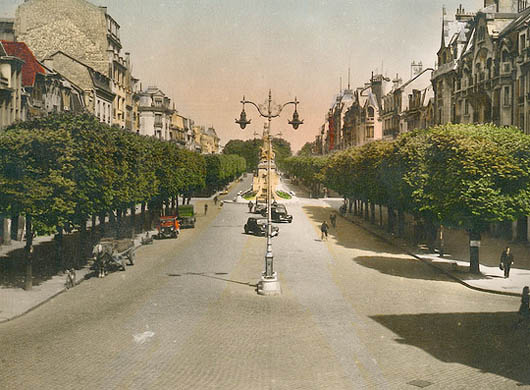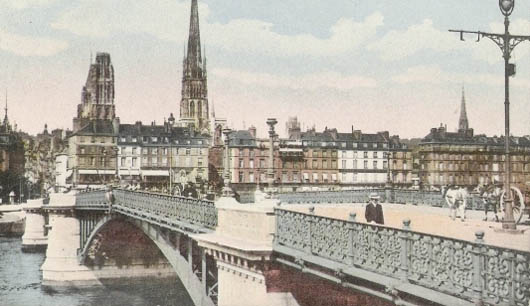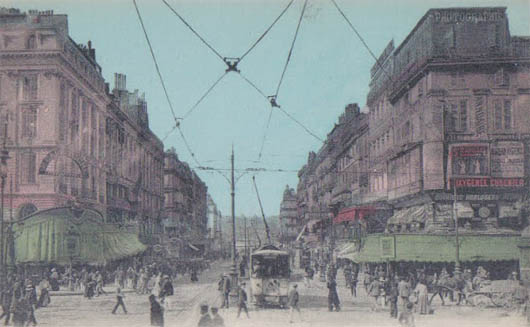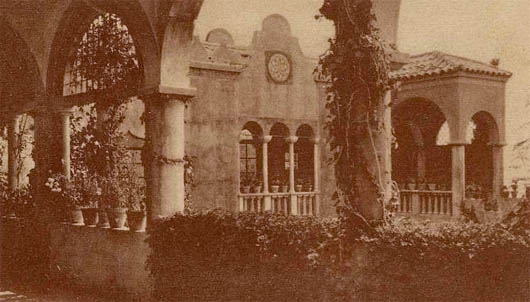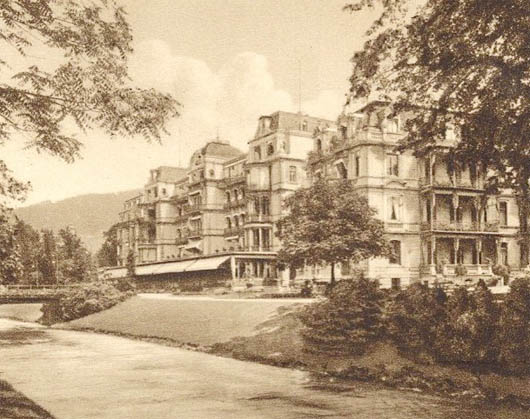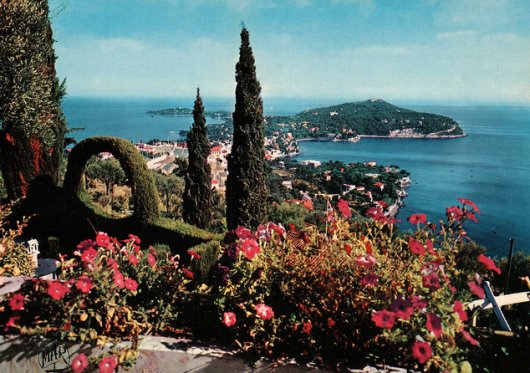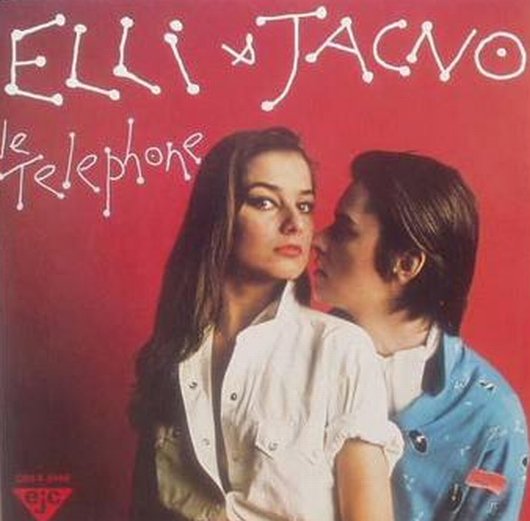 BOOKS
BOOKS In Which Sometimes The Sun Goes Round The Moon
 Tuesday, January 26, 2016 at 11:02AM
Tuesday, January 26, 2016 at 11:02AM 
The Strange Case
by VLADIMIR NABOKOV
Dr. Jekyll and Mr. Hyde was written in bed, at Bournemouth on the English Channel, in 1885 in between hemorrhages from the lungs. It was published in January 1886. Dr. Jekyll is a fat, benevolent physician, not without human frailties, who at times by means of a potion projects himself into, or concentrates or precipitates, an evil person of brutal and animal nature taking the name of Hyde, in which character he leads a patchy criminal life of sorts. For a time he is able to revert to his Jekyll personality — there is a down-to-Hyde drug and a back-to-Jekyll drug — but gradually his better nature weakens and finally the back-to-Jekyll potion fails, and he poisons himself when on the verge of exposure. This is the bald plot of the story.
First of all, if you have the Pocket Books edition I have, you will veil the monstrous, abominable, atrocious, criminal, foul, vile, youth-depraving jacket — or better say straitjacket, You will ignore the fact that ham actors under the direction of pork packers have acted in a parody of the book, which parody was then photographed on a film and showed in places called theaters; it seems to me that to call a movie house a theater is the same as to call an undertaker a mortician.

And now comes my main injunction. Please completely forget, disremember, obliterate, unlearn, consign to oblivion any notion you may have had that Jekyll and Hyde is some kind of a mystery story, a detective story, or movie. It is of course quite true that Stevenson's short novel, written in 1885, is one of the ancestors of the modern mystery story. But today's mystery story is the very negation of style, being, at the best, conventional literature. Frankly, I am not one of those college professors who coyly boasts of enjoying detective stories — they are too badly written for my taste and bore me to death. Whereas Stevenson's story is — God bless his pure soul — lame as a detective story. Neither is it a parable nor an allegory, for it would be tasteless as either. It has, however, its own special enchantment if we regard it as a phenomenon of style.
It is not only a good "bogey story,” as Stevenson exclaimed when awakening from a dream in which he had visualized it much in the same way l suppose as magic cerebration had granted Coleridge the vision of the most famous of unfinished poems. It is also, and more importantly, ”a fable that lies nearer to poetry than to ordinary prose fiction,” and therefore belongs to the same order of art as, for instance, Madame Bovary or Dead Souls.
There is a delightful winey taste about this book; in fact, a good deal of old mellow wine is drunk in the story: one recalls the wine that Utterson so comfortably sips. This sparkling and comforting draft is very different from the icy pangs caused by the chameleon liquor, the magic reagent that Jekyll brews in his dusty laboratory. Everything is very appetizingly put. Gabriel John Utterson of Gaunt Street mouths his words most roundly; there is an appetizing tang about the chill morning in London, and there is even a certain richness of tone in the description of the horrible sensations Jekyll undergoes during his hydizations. Stevenson had to rely on style very much in order to perform the trick, in order to master the two main difficulties confronting him: (1) to make the magic potion a plausible drug based on a chemist‘s ingredients and (2) to make Jekyll’s evil side before and after the hydization a believable evil.

The names Jekyll and Hyde are of Scandinavian origin, and I suspect that Stevenson chose them from the same page of an old book on surnames where I looked them up myself. Hyde comes from the Anglo-Saxon hyd, which is the Danish hide, "a haven." And Jekyll comes from the Danish name Jokulle, which means "an icicle." Not knowing these simple derivations one would be apt to find all kinds of symbolic meanings, especially in Hyde, the most obvious being that Hyde is a kind of hiding place for Dr. Jekyll, in whom the jocular doctor and the killer are combined.
Three important points are completely obliterated by the popular notions about this seldom read book:
1. Is Jekyll good? No, he is a composite being, a mixture of good and bad, a preparation consisting of a ninety-nine percent solution of Jekyllite and one percent of Hyde (or hydatid from the Greek “water" which in zoology is a tiny pouch within the body of man and other animals, a pouch containing a limpid fluid with larval tapeworms in it — a delightful arrangement, for the little tapeworms at least. Thus in a sense, Mr. Hyde is Dr. Jekyll’s parasite — but I must warn that Stevenson knew nothing of this when he chose the name.
Jekyll’s morals are poor from the Victorian point of view. He is a hypocritical creature carefully concealing his little sins. He is vindictive, never forgiving Dr. Lanyon with whom he disagrees in scientific matters. He is foolhardy. Hyde is mingled with him, within him. In this mixture of good and bad in Dr. Jekyll the bad can be separated as Hyde, who is a precipitate of pure evil, a precipitate in the chemical sense since something of the composite Jekyll remains behind to wonder in horror at Hyde while Hyde is in action.
2. Jekyll is not really transformed into Hyde but projects a concentrate of pure evil that becomes Hyde, who is smaller than Jekyll, a big man, to indicate the larger amount of good that, Jekyll possesses.
3. There are really three personalities — Jekyll, Hyde, and a third, the Jekyll residue when Hyde takes over.
The situation may be represented visually.

But if you look closely you see that within this big, luminous, pleasantly tweedy Jekyll there are scattered rudiments of evil.


Still if you look closely at Hyde, you will notice that above him floats aghast, but dominating, a residue of Jekyll, a kind of smoke ring, or halo, as if this black concentrated evil had fallen out of the remaining ring of good, but this ring of good still reamins. Hyde still wants to change back to Jekyll. This is the significant point.

It follows that Jekyll’s transformation implies a concentration of evil that already inhabited him rather than a complete metamorphosis. Jekyll is not pure good, Hyde (Jekyll's statement to the contrary) is not pure evil, for just as parts of unacceptable Hyde dwell within acceptable Jekyll, so over Hyde hovers a halo of Jekyll, horrified at his worser half's iniquity.
...
I would like to say a few words about Stevenson's last moments.
As you know by now, I am not one to go heavily for the human interest stuff when speaking of books. Human interest is not in my line, as Vronski used to say. But books have their destiny, according to the Latin tag, and sometimes the destinies of authors follow those of their books. There is old Tolstoy in 1910 abandoning his family to wander away and die in a station master’s room to the rumble of passing trains that had killed Anna Karenin. And there is something in Stevenson's death in 1894 on Samoa, imitating in a curious way the wine theme and the transformation theme of his fantasy. He went down to the cellar to fetch a bottle of his favorite‘ burgundy, uncorked it in the kitchen, and suddenly cried out to his wife: what's the matter with me, what is this strangeness, has my face changed? — and fell on the floor. A blood vessel had burst in his brain and it was all over in a couple of hours.
What, has my face changed? There is a curious thematical link between this last episode in Stevenson's life and the fateful transformations in his most wonderful book.

V.N.'s Chronology of Madame Bovary
First Part
1815 Charles born
1821 Gustave born
1827 Charles begins lessons with village priest (spring)
1828 (spring) confirmation
1831 (spring) is removed from school
1834 (spring) fails in medical exam (father hears of it five years later)
1835 (spring) passes exam, becomes "officier de sante"
1835 (fall) goes to Tostes to practice
1836 (Jan.) marries first wife, Heloise Dubuc
1837 (6th or 7th Jan.) goes to Les Bertaux first time
1837 (early spring) first wife dies
1837 (later in spring) goes to Les Bertaux again
1837 (Sept.) makes proposal to Emma Rouault
1838 (June) wedding
1838 (Sept.) ball
1839 (Sept) no ball (all winter at Tostes)
1840 (Feb.) turkey from Rouault

Second Part
1840 (March) Tostes to Yonville, Emma pregnant
1840 (summer) Bertha born
1840 (summer) walk to the nurse's house.
1841 (Feb.) walk to cotton mill
1841 (March) Bertha taken home
1841 (early April) visit to priest
1841 (early May) leaves for Paris
1842 (spring) Rodolphe brings farmboy to be bled
1842 county fair
1842 (winter) affair with Rodolphe
1843 (3rd Sep.) Rodolphe leaves Emma
1843 (4th Sep. Monday) the date fixed for their elopement, see Chap. 12; no other 4th of Sep. falls on Monday in the early forties. Emma falls sick - brain fever.
1843 (17 Oct.) recovery
1844 (June) opera, Leon "after three years of absence"

Third Part
1844 (all year) affair with Leon
1845 (summer) roses
1845 (autumn) Charles with Bertha in garden
1846 (mid-Lent, early March) fancy dress ball
1846 (March) Emma asks Leon for money
1846 (March) Emma dies, aged 26-28
1846 (around end May) Felicite runs off with Theodore, taking all Emma's clothes; Leon marries
1846 (early summer) Charles find Rodolphe's last letter
1846 (winter) Homais getting rid of beggar
1847 (around March) mausoleum
1847 (summer Aug) Charles finds all letters; goes to cemetery, sells horse; meets Rodolphe; dies next day aged 33.
1847 Homais calls Louis Philippa (1830-1848) "one good king"
1848 (Feb.) revolution
1856 (April, Napoleon III is now Emperor) Bertha, aged 15, works in a cotton mill. Three doctors have succeeded one another at Yonville between 1847 and 1856; Homais has just received the Cross of the Legion.

"Mystery Light" - Alice on the Roof (mp3)































